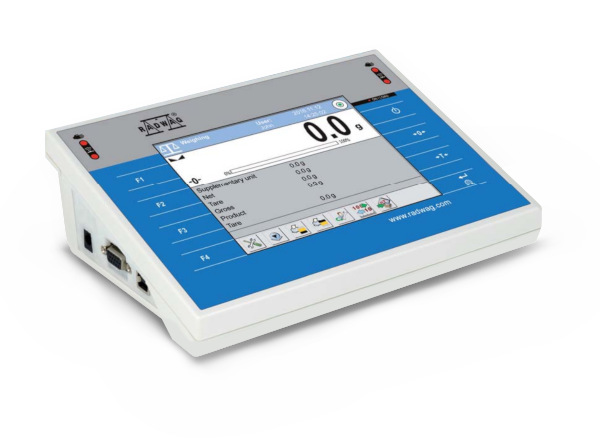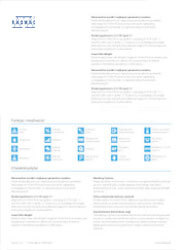Wägeterminal PUE 7.1

Ergonomisches und bequemes Arbeiten
An das Messgerät können maximal 2 Wägeplattformen, Barcodescanner, Drucker und Etikettendrucker, RFID-Leser und PC-Peripherien (Maus, Tastatur, USB-Datenträger) angeschlossen werden. Das PUE 7.1-Terminal in der Standardausführung arbeitet mit 1 Wägeplattform und verfügt über eine umfangreiche Kommunikationsschnittstelle: 2×USB, 2×RS-232, Ethernet, 4 Eingänge/ 4 Ausgänge (digital), Wi-Fi®.
Wi-Fi® ist eine eingetragene Marke der Wi-Fi Alliance®.











 Albanian
Albanian Danish
Danish Nederlandse
Nederlandse Estonian
Estonian Finnish
Finnish Hungarian
Hungarian Icelandic
Icelandic Kazakh
Kazakh Latvian
Latvian Lithuanian
Lithuanian Macedonian
Macedonian Norwegian
Norwegian Portuguese
Portuguese Romanian
Romanian Russian
Russian Slovak
Slovak Slovenian
Slovenian Swedish
Swedish Ukrainian
Ukrainian Serbian
Serbian Montenegrin
Montenegrin Português (Brasil)
Português (Brasil) English
English Español
Español Français
Français Italiano
Italiano Japanese (日本語)
Japanese (日本語) Polski
Polski Türkiye
Türkiye Česky
Česky 中文
中文




















